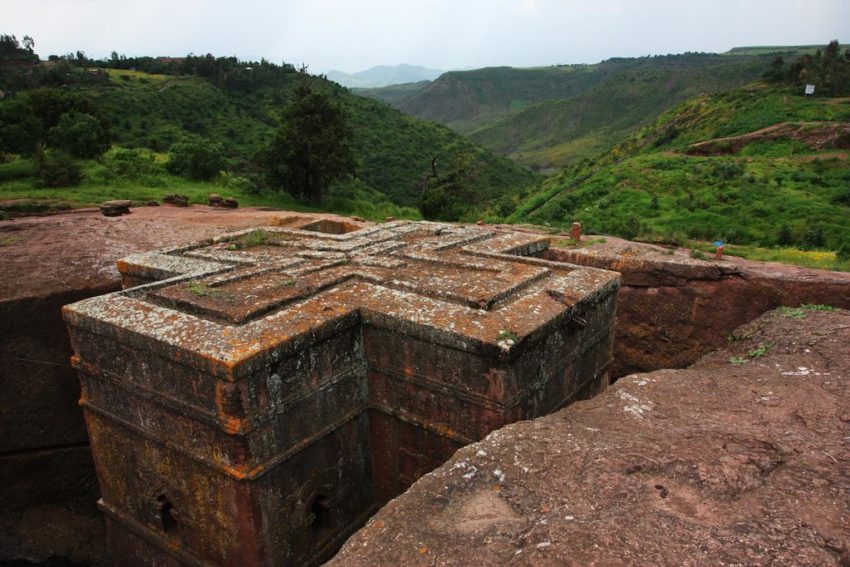
Lalibela, Ethiopia is a small town in the north of this African country, where you’ll encounter 11 stone churches carved by hand. The most impressive one is Bet Giorgis (the House of Saint George) which carved out of solid rock. Another important church is Bet Medhane Alem (the House of Emmanuel), the largest carved monolithic structure in the world with 800 square meters.
However, don’t be fooled by appearances. Despite their old façade, the churches are still functional and each one of them even has a priest.
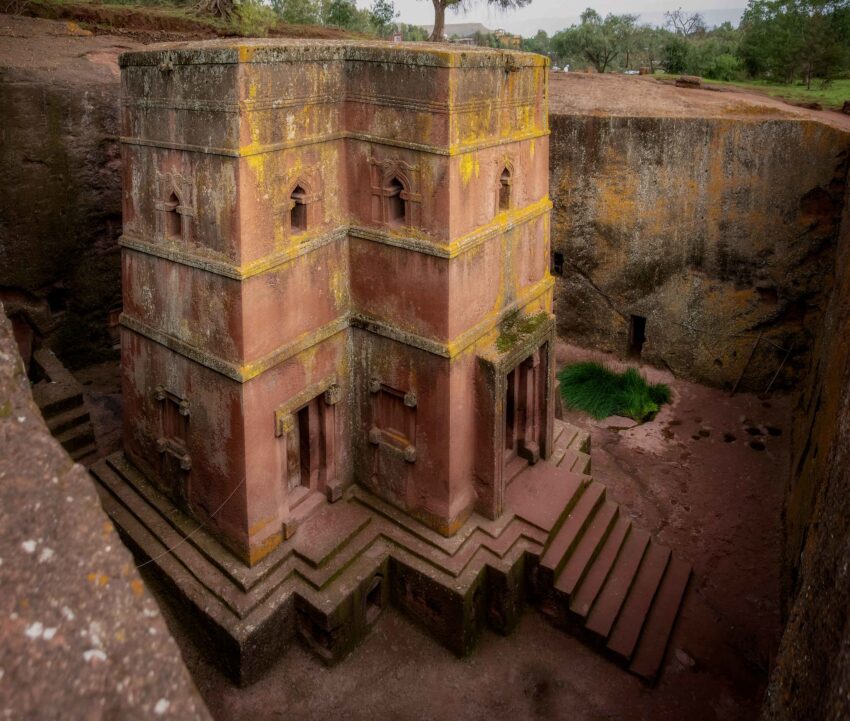
Activity/Place Highlights
The Church of Bet Giorgis
One of the most visited and important places in this location is the church of Bet Giorgis. Its the most representative image, appearing in many postcards of the country.
Once you are around it, you totally understand why. A colossal cross-shaped church rises up to 15 meters under the ground. Its level of precision is astonishing considering that it was sculpted from a solid volcanic rock.
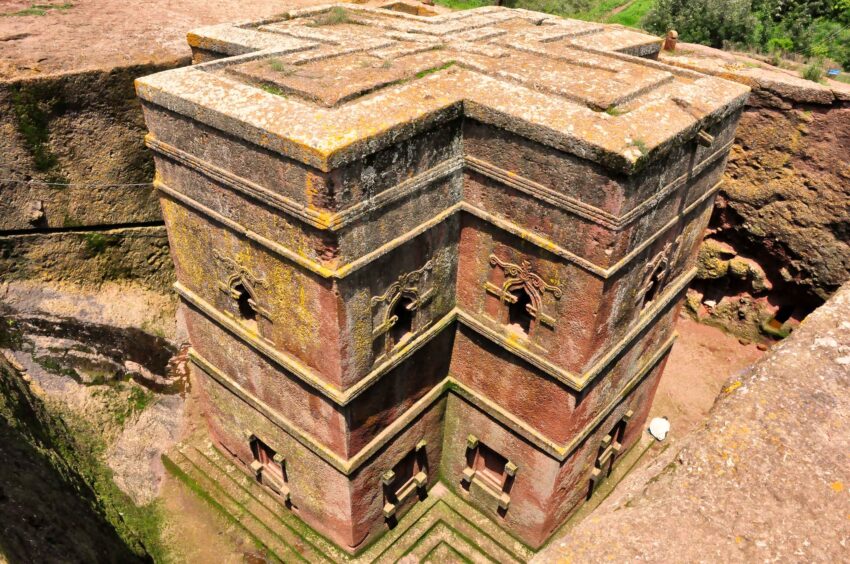
The sacred and calmed atmosphere surrounding the church takes over of all of your senses. From early in the morning, there are pilgrims worshiping either up or in the church wearing white clothes. This is a ceremony that Ethiopian people have been doing for thousands of years.
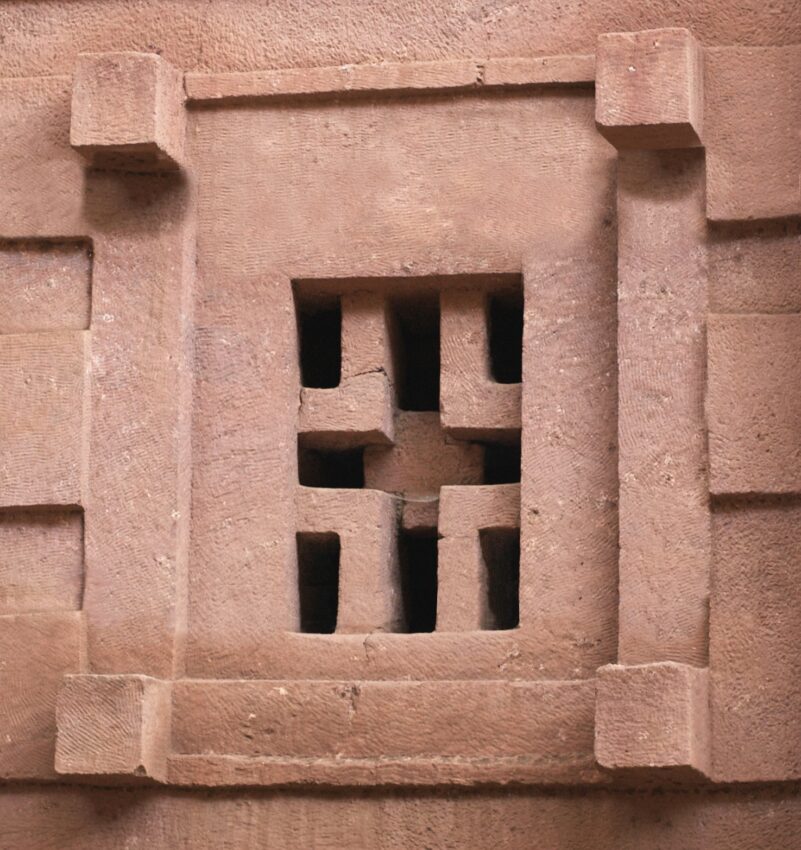
To enter this church, you will have to walk through a narrow and rocky underground passage. And when you are right in front of the façade of the church, you can closely experience the intensity of the color of the rock. Also, you can pinpoint the details of this miraculous structure in the symmetrical cross-shaped windows and touch the precise finish of the edges and walls.
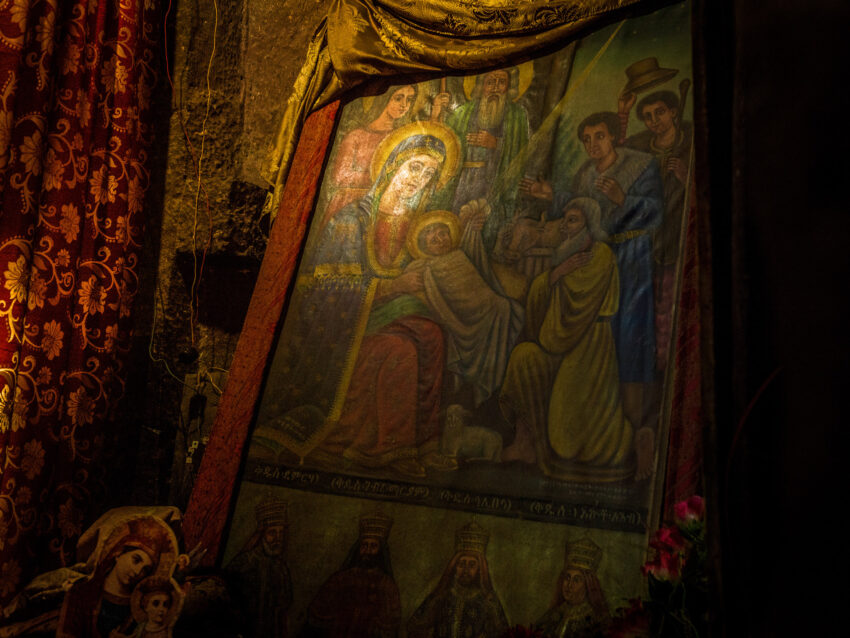
The more you see it, the more you wonder how they managed to build this infrastructure so precisely in the 13th century AD.
Then, to go into the churches, you have to take off your shoes to show the due respect. Inside the church, you see pilgrims worshiping, the red and blue curtains, and feel the carpets covering the floor with your bare feet. The interior is decorated with Christian paintings, and there are crosses all over the place.
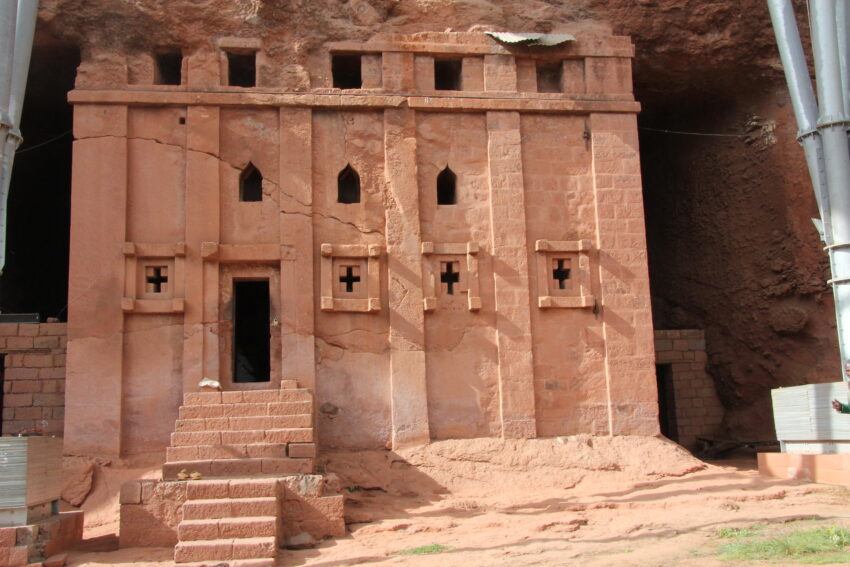
A New Jerusalem Underground
It’s fascinating to see how this spiritual aura repeats time and again in the rest of the churches. Indeed, the churches in Lalibela are supposed to be a symbolic representation of the Holy Land Jerusalem. All churches are interconnected through underground tunnels and passages. Walking through them makes you feel as if you are in an Indiana Jones’ adventure.
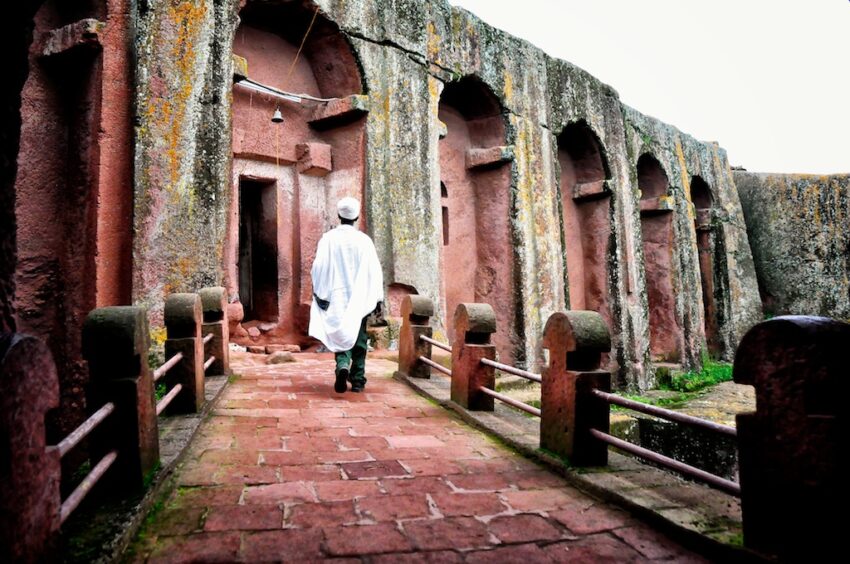
It’s not hard to find pilgrims praying either inside or outside the churches. In fact, Lalibela is such an important place that pilgrims from all over Ethiopia come to visit it. You can even see many semi-permanent ascetics sitting around the churches reading their bibles.
Markets in Lalibela
Apart from visiting the 11 carved churches, there are other interesting things to do in Lalibela. On the weekends, you can visit the markets to have a general insight of the Ethiopian people and their day-to-day life as well as to appreciate their local weaving. Don’t forget to visit Donkey park.

Visiting Dugusach
I also recommend that you arrange cultural trekking tours to a rural area called Dugusach, to have a stunning view of the whole area. These tours give you the opportunity of mingling with locals at special moments as well as eating local food. In general, this tour lasts from one day to two days.
Take a Brewery Tour
Finally, after a long journey visiting the churches, the only thing you will want to do is to relax for a while. There is no better way to do it than on a brewery tour. In this tour, you will visit three local home breweries to see how they produce the traditional local beer tella.
How to get there
From most airports around the world, you can fly to the capital of Ethiopia with Ethiopian Airlines. And for internal flights to Lalibela, you can travel with Addis Adaba.
When to go
If you want to witness one of the most colorful festivals in Ethiopia, visit Lalibela on January 19 when Epiphany day is celebrated. In this festival, the holy tabots from the churches (also known as the replicas of the Ark of the Covenant) are paraded in the town.
Opening and Closing Hours
To enter the monolithic churches, you will have to pay a $50 ticket that is valid for a couple of days. Bear in mind that the churches are open from 06:00 to 12:00, and 14:00 to 17:00.
Planning
Accommodation in this small town is very simple, but Roha is a really good option. If you are planning to go during the festival, book with plenty of time. Besides, it’s a really good idea to have a local guide with a good level of English, so that they can translate what the priests say to you.

Source by Göran Höglund (Kartläsarn) on Flickr – Under Creative Commons license
History
The constructions of these remarkable churches are surrounded by a mystical aura. Some people say that crusaders who came from the Holy Land built the churches, but most Ethiopians think that the power of angels helped King Lalibela build the churches.
Since the 4th century, Ethiopian Orthodox, a version of Christianity, is the official religion of Lalibela. An interesting fact about this is that they made that decision consciously. Unlike other African people who took Christianity as a result of missionary work.
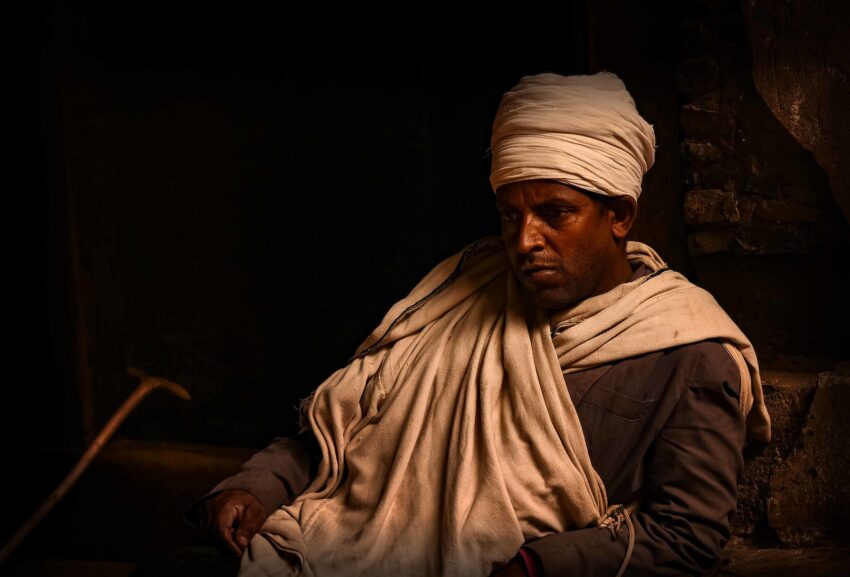
Other Nearby Attractions
Asheton Maryam Monastery
You can’t miss the excursion from Lalibela to the Asheton Maryam monastery that is carved in the rock of a plateau. There, you will find the captivating group of paintings and relics, and you will live the tough conditions that locals live first hand.
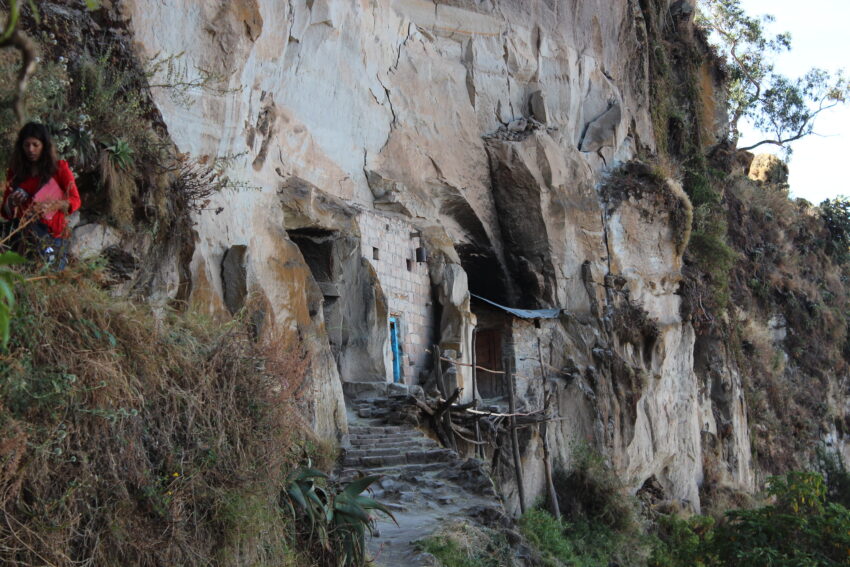
If you loved this article or found it useful, don’t forget to share it with your adventurous and travel-hacking friends! If you want more posts like this, follow us on Youtube, Instagram, Pinterest, Twitter or Facebook and subscribe to our newsletter!

